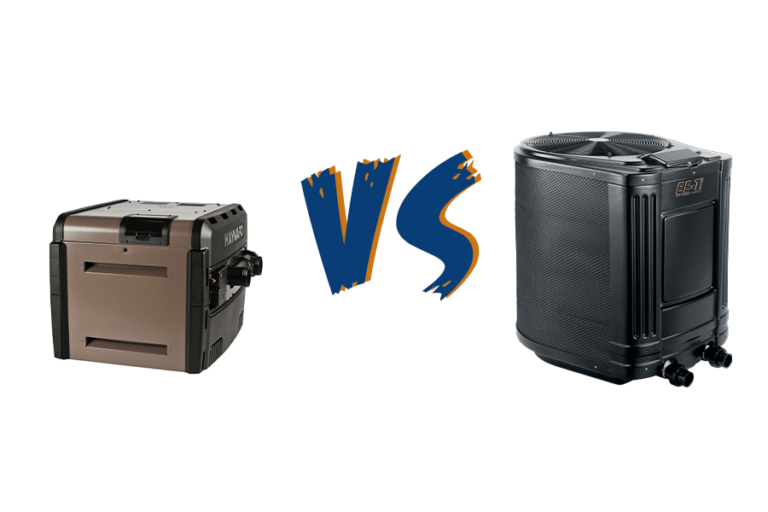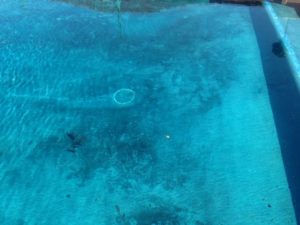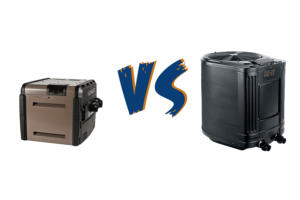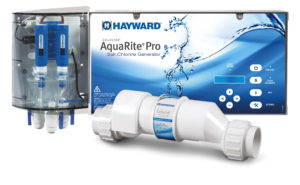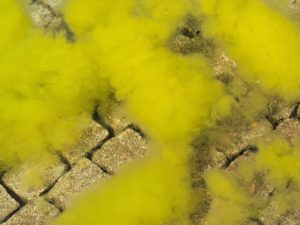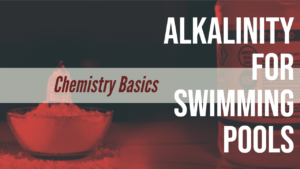Benefits of a Gas Pool Heater
Gas heaters have been the preferred option over the years as they usually cost less than electric heat pumps. They can come in propane and natural gas variants meaning installation time can often be quite quick.
Gas pool heaters also have a near-instant heat transfer. When the heater is on the water coming out of the jets can get a hot tub up to 104 degrees in just minutes and pool up and over 88 degrees in just a couple of hours. Because they rely on a flame and copper heat exchanger they work pretty much the same regardless of environment.
If you’re the person who wants the pool to get hot fast or is spontaneous with their hot tub time then a gas pool heater is the way for you.
Benefits of an Electric Pool Heater
While gas pool heaters are usually cheaper to install, electric heat pumps are often cheaper to operate. Their prices have actually been coming down over the years adding more to the need to compare on features as opposed to their price. They’re able to achieve the same results as gas heaters, albeit at a slightly slower rate.
Electric pool heaters operate like a reverse air-conditioner. They use air-flow as opposed to a flame to transfer heat so they are affected by things like ambient air temperature and humidity. That makes them great for places like Florida, Louisiana & Georgia where year-round we remain fairly warm and humid because those factors help the heater to transfer heat into the water faster.
Once an electric heater reaches temperature it’s also incredibly efficient at maintaining that temperature. Making it the best choice if you want your pool ready at a constant temperature at all times
Maintenance and Longevity
With proper maintenance of both the equipment and pool chemistry, you can expect many years beyond your warranty period of enjoyment. That being said, gas heaters are more susceptible to damage from poor chemistry as they use copper in their heat exchangers instead of the titanium used in their electric counterparts.
Improper chemical balance can lead to stripping copper from the heat exchanger. This is bad for the heater as this is corrosion but remember this copper has to go somewhere. That somewhere ends up being the surface of your pool and it shows up as nasty blue or purple streaks and patches which are very hard to remove.
This is an extreme case that only really happens after a prolonged period of chemical mismanagement. With proper practices outlined in our chemistry basics guides, you can prevent them from occurring.
Chemistry Guides:
Closing statement
Both heaters are great and perform the same basic job that is “heat the pool or spa”. And while one may not be better than the other they do excel over one another in one way or another.
Do you want your pool or spa heated immediately or you don’t use it particularly often?
A gas heater is likely your best choice.
but –
If you use your pool often and like the thought of having the temperature set at all times, electric is the way to go for you.
F.A.Q.
Gas pool heaters can last around 10 years with proper maintenance and care.
Around 10 years is normal for most electric pool heaters.
Copper stripped from a gas pool heater is the most common cause of the blue streaky staining. This was likely caused by poor chemical balance over a prolonged period of time.
Gas pool heaters are the fastest way to get your pool hot.

